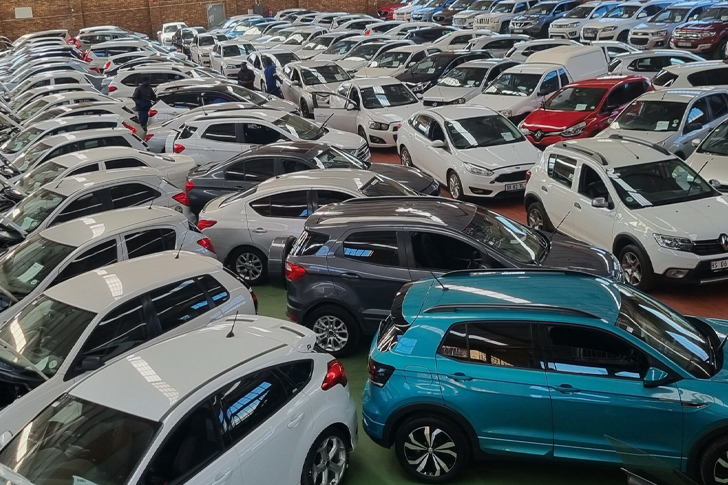Opportunities in the Repossessed Car Market for Buyers
The repossessed car market offers a unique opportunity for potential buyers looking to find vehicles at significantly reduced prices. When a vehicle owner fails to make their loan repayments, the lender will often repossess the vehicle to recover the unpaid debt. These vehicles are then typically disposed of through auctions or direct sales, often at prices standard retail value. For buyers, this presents a chance to secure a car for personal use or resale at a cost-effective rate. This examination delves into the workings of the repossessed car market and outlines strategies to identify valuable opportunities within this space.

Understanding the Repossessed Car Market
Repossession occurs when a car owner defaults on their car loan payments. According to Experian, as of 2022, the auto repossession rate in the United States stands at roughly 2.5%. This relatively small percentage represents a considerable number of individual vehicles given the vast amounts of auto loans issued annually—the Federal Reserve reported approximately $1.46 trillion in outstanding auto loan balances in the US in 2022.
Financial institutions, such as banks and credit unions, primarily handle these repossessions, though other loan providers and organizations are also involved. Post-repossession, the vehicles are generally sold at an auction or directly by the financial institution to recoup losses. Key players in this market include auction houses, car dealerships that specialize in used vehicles, and online platforms that list repossessed cars for sale.
The Benefits of Buying Repossessed Cars
One of the primary advantages of purchasing a repossessed car is the price. These vehicles are often sold at considerably lower costs in comparison to typical used car market values. Lower prices stem from the urgency financial institutions face in liquidating these assets quickly to minimize holding costs and recover the loan balance.
Furthermore, while some repossessed cars might be in poor condition due to prior owner neglect or the repossession process itself, many are relatively new and in good shape. Often, these vehicles are less than three years old and can include upgraded features that are expensive in the standard market. This is because a significant portion of repo cars come from individuals who initially bought the car brand new but failed to meet their financial obligations.
Challenges and Considerations
Purchasing a repossessed vehicle isn’t without its potential pitfalls. One major concern is the vehicle’s unknown history. While some repossessed cars are well-maintained, others may have hidden damage or maintenance issues overlooked in the repossession process. It’s also possible that previous owners have neglected care due to financial difficulties, leading to issues not immediately apparent during a sale.
Another point to consider is the lack of warranty and the as-is nature of most repo vehicles. This means buyers will have to accept all associated risks with the car’s condition. Due diligence such as reviewing vehicle history reports, checking for any liens against the car, and a thorough pre-purchase inspection are critical steps in mitigating such risks.
Strategies for Buying Repossessed Cars
To start exploring the repossessed car market, one effective approach is to connect with local banks and credit unions to inquire about upcoming auctions or sales. Furthermore, many institutions list their repo vehicles online, providing an accessible avenue for prospective buyers to view available cars.
Attending auctions can also be a strategic move. Auctions traditionally provide opportunities to purchase vehicles at lower prices, though they can also be competitive and daunting for new buyers. Preparation is key—familiarizing oneself with the auction process, setting a budget, and knowing the type of vehicle you want to purchase will all contribute to a more successful auction experience.
Finally, building relationships with auction house staff and repossessed car dealers can unlock many advantages. These professionals can offer valuable advice and early insights into what vehicles are coming up for sale, allowing for better preparation and smarter buying decisions.
Economic Impact and Trends
The repossessed car market indirectly reflects economic trends such as unemployment rates or financial crises, which can lead to higher default rates and subsequently, an increased number of available repossessed cars. The COVID-19 pandemic highlighted such an effect, with an initial spike in repossessions due to economic hardships faced by many individuals.
Understanding these economic indicators can give buyers a competitive edge by anticipating market fluctuations. For instance, during economic downturns, the increase in inventory can reduce prices further, while economic recovery might tighten the availability of repo cars, pushing prices slightly higher.
Conclusion
The repossessed car market represents a fascinating sector offering significant financial advantages for discerning buyers. With the potential for lower purchase prices and relatively new vehicle options, the benefits are tangible. However, navigating this market requires careful planning, awareness of the potential risks, and a strategic approach to buying. By comprehensively understanding these elements, buyers can effectively leverage opportunities in the repossessed car market and make informed purchasing decisions.
As with any significant investment, entering the repossessed car market is best approached with thorough research and preparation, ensuring that the chosen vehicles meet both financial and practical requirements for the buyer.







Recent Comments